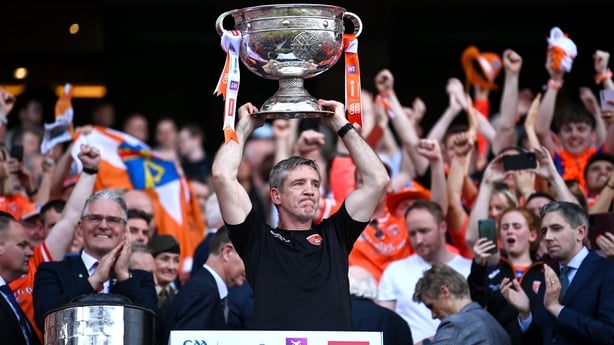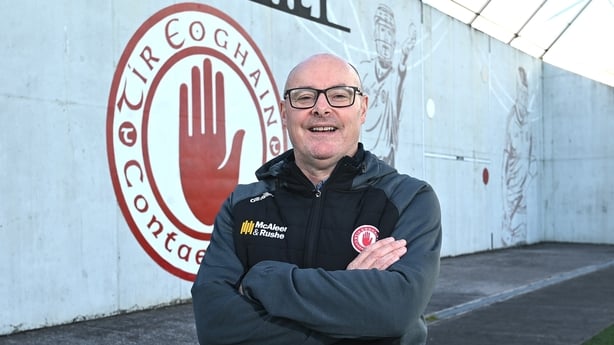Last weekend saw the 50th anniversary of Dublin's All-Ireland triumph against Galway, when Heffo's Army arrived on the scene.
'You'll Never Walk Alone' was being sung on the Hill and on the Croke Park sod as Sean Doherty accepted the Sam Maguire Cup. That victory half a century ago ended an 11-year wait for a title but the time in between saw Dublin's stock fall quite dramatically.
Playing for the Dubs was something you didn't shout about. At the start of the '74 campaign, even with Kevin Heffernan now at the helm, the side were rank outsiders to even emerge from Leinster.
Much has been written and said about how Heffo brought Dublin from the land of nowhere to win an All-Ireland that kick-started a run of six final appearances, with three victories for the Boys in Blue. But that maiden success, even if the final against Galway was far from vintage, is nevertheless a sporting journey that will be replayed over and over again.
Fifty years on and again we had another tale of the unexpected, but one that Roald Dahl would not have written about.
Armagh, in winning a second All-Ireland title, weren't as far down the pecking order as the Dubs were in the year Abba won the Eurovision, but still would not have featured on too many of the prediction lists in early spring. While Dublin players in the early 70s exhibited a shrunk disposition when it came to playing for their county, Armagh, in recent seasons, carried the weight of 'nearly men'.

Never mind the heartache of all those penalty shootouts, Kieran McGeeney's men had their chance to avoid that lottery in games that mattered. And then they found a way: coming good after extra-time against Kerry and then hanging tough in those nerve-tingling final minutes against Galway.
The 'nearly men' had finally arrived. Sensing that they could land the big prize, they did just that. In what is now a more open space at football's top table, Armagh, while never too far back in the pack, have given hope to others. It sets things up nicely for 2025.
Armagh's rise to the summit under McGeeney, a decade in the making, had more than a few false dawns. Some doubted whether 'Geezer' would ever get them to fully see the light. Only 12 months ago, a number of club delegates in Armagh wanted him out, but a block of support from the Orchard County's management committee helped him to secure a tenth year at the helm.
McGeeney, prior to the All-Ireland triumph, steadfastly kept the faith, and did not go along with the view that his side could not close out games, highlighting instead opposition who were better at taking penalties.
For now, the Armagh boss can bask in the glory, even if Sam's second visit to the Ulster county was somewhat unexpected, similar to the All-Ireland success enjoyed by Down in 1991, Meath in '96 and Galway in '98. For Armagh it was a case of seizing their chance in a world where no one superpower now lords it over the others.
The next few weeks will see much focus on the proposed rule enhancements brought to us by the Football Review Committee. The Jim Gavin-led group aim to make Gaelic football the world's best amateur game to play and watch.
'Overtime showdowns' and black cards for tactical fouls on the agenda for ambitious FRC
The seven proposed rule changes, which will be trialled across a series of interprovincial games on 18/19 October, may or may not revolutionise the game. But let's hope it can go some of the way towards ensuring greatness on a global scale. All the better then if democracy reigns and predictions are hard to make before the championship starts.
Armagh are fifth favourites to retain their title next summer, with Kerry, Dublin, Galway and Donegal all ahead of them.
Jack O'Connor has freshened up his backroom team in the Kingdom; Dessie Farrell will look to unearth a few options capable of turning games; for Pádraic Joyce and the Tribes it's a case of hoping for a full deck, fitness-wise, and getting an able replacement for Cian O'Neill, while Jimmy McGuinness, now back winning matches with Donegal, will look to win a few more in '25.

No doubt, the pair that could do an 'Armagh' in the next year or two are Tyrone and Mayo. Malachy O'Rourke (pictured) is a smart appointment for the Red Hand, and will look to integrate a promising crop of U-20s into the squad.
Kevin McStay, after a review at the end of his second year in charge of Mayo, will go again. 2024 showed that the Green and Red lacked the killer instinct to close out tight games. How different their year could have been had they held the lead against Dublin in the group stages and then headed directly for Croker.
And then there's managerless Derry, who were all the rage last spring before having a summer of some discontent. They have it in them though to rise again.
With the prospect of rule changes and a much-needed revamp of the championship structure to come, the new footballing democracy could flourish. Not the "unmitigated mess" on the field of play that Tony Ward depicted in a recent Irish Independent article.
Armagh played the starring role in this year's tale of the unexpected. We don't know who the star turns will be in future episodes, but more than a few counties seem capable of such top billing going forward. Football, then, returning to its more democratic phase of the 1990s and early 2000s.


